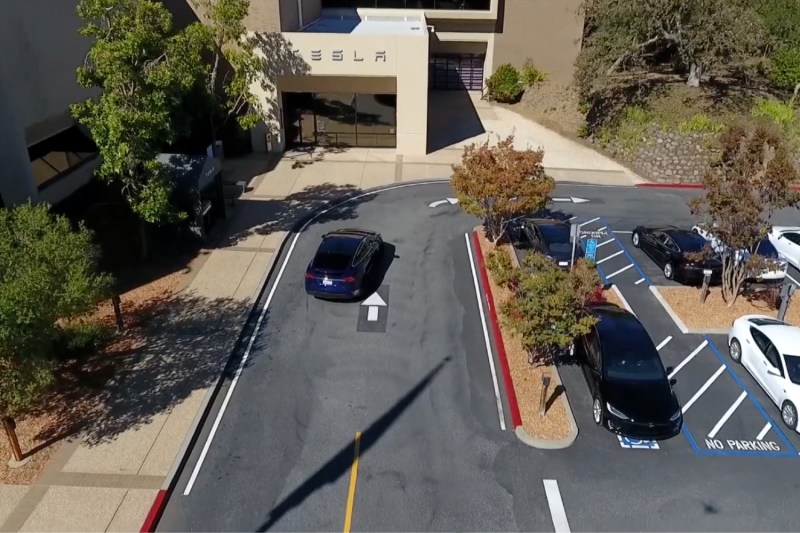While most cars on the road today offer some kind of advanced driver-assist system that lets them handle some aspects of driving, the technology was relatively new in 2016. That’s what made Tesla’s video depicting a Model X driving itself so remarkable. The video showed a Model X driving from a house in Menlo Park, California, to Palo Alto without any input from a driver (the video is at the bottom of this article if you haven’t seen it in a while). The video was used to promote Tesla’s self-driving technology and Tesla CEO Musk quickly took to Twitter to state that the video was evidence that a “Tesla drives itself.”
Well, it turns out that the video was faked. Who would’ve guessed it? According to a new report from Reuters, the video that clearly shows a Model X driving by itself is actually a video of a Model X that’s driving by itself with technology that Tesla wasn’t offering in its production vehicles. The news comes from a transcript of a July deposition that the outlet received, which was originally taken as evidence in a lawsuit against Tesla for a 2018 fatal accident involving a former Apple engineer.

The testimony comes from Ashok Elluswamy, director of Autopilot software at Tesla. “The intent of the video was not to accurately portray what was available for customers in 2016. It was to portray what was possible to build into the system,” said Elluswamy in his testimony.
To create the video, Tesla reportedly used 3D mapping on a predetermined route. Elluswamy claims that drivers behind the wheel of the Model X had to intervene to take control of the car, and when Tesla was trying to show off just how well the vehicle could park on its own, the Model X crashed into a fence in Tesla’s parking lot. When asked if the video portrayed abilities, like stopping at a red light and acceleration at a green light, that Tesla was offering on vehicles that customers could purchase in 2016, Elluswamy said, “It does not.”
This isn’t the first we’re hearing that the video is staged, but this is the first time an existing Tesla employee has gone on the record to definitively state that the video is fake. In 2021, The New York Times carried out an investigation that involved speaking with several of Tesla’s former employees who stated the video was fake.
Tesla has been under fire because of its Autopilot driver-assist system. The National Highway Traffic Safety Administration (NHTSA) has reportedly looking into roughly 41 crashes involving a Tesla and its advanced driver-assist systems. The U.S. Department of Justice started a criminal investigation into Tesla’s claims that one of its EVs can drive itself in 2021 after a number of fatal accidents involving Tesla’s Autopilot system, claims Reuters. Someone has created a website called Tesla Deaths, which keeps track of all of the fatal accidents that have occurred in a Tesla. As of today, the website claims that there have been 348 deaths involving a Tesla.
Musk promised that Tesla would have a completely self-driving vehicle on sale by the end of 2017. It’s now 2023 and Tesla still doesn’t have a fully autonomous vehicle on sale – no automaker does, regardless of what they’re claiming – despite selling a package that’s called “Full Self-Driving Capability.”



